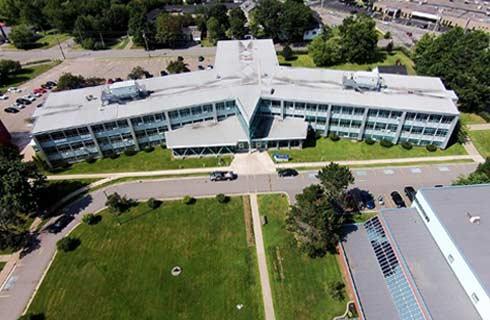历史哲学博士-数字历史
Doctor of Philosophy in History - Digital History

学历文凭
Ph.D.

专业院系
History

开学时间

课程时长

课程学费

国际学生入学条件
IDP—雅思考试联合主办方

雅思考试总分
7.0
了解更多
雅思考试指南
- 雅思总分:7
- 托福网考总分:100
- 托福笔试总分:160
- 其他语言考试:NA
CRICOS代码:
申请截止日期: 请与IDP顾问联系以获取详细信息。
课程简介
Digital history harnesses new technologies to analyze historical sources, to locate patterns and trends, and to communicate scholarly findings. Digital historians use a wide range of analytic approaches. Some engage in text mining or big-data analysis to identify patterns, others study the construction and evolution of spaces or flows using geographic information systems (GIS), and still others use digital tools to analyze networks. In addition to helping historians approach questions from new angles, digital technologies provide novel vehicles for sharing our research with others. Many digital historians incorporate graphs, visualizations, or computer-generated statistics into their writings. Others use born digital platforms for scholarly communication, constructing interactive websites based on their research. Finally, some digital historians use technology to create new communities through blogs, discussion groups, and online exhibits or repositories of historical materials. Chicago's digital historians have a range of interests. For example, Faith Hillis works with historical GIS and network analysis tools to trace the movement of people and commodities across time and space. Dain Borges works with digitized censuses and geographical databases on social history, and with text corpuses on intellectual history.
相关申请
 预科
预科 奖学金
奖学金 实习机会
实习机会 在校学习
在校学习 跨境学习
跨境学习 校园授课-线上开始
校园授课-线上开始 在线/远程学习
在线/远程学习
学校排名

世界排名10
数据源:泰晤士高等教育世界大学排名
关于芝加哥大学

选择美国芝加哥大学(University of Chicago)的学生基本上都是那些迫切的想要摆脱高中小集团和肤浅的常青藤联盟威望的学生,这些学生更渴望为学习而学习而不是仅仅为了毕业之后找到一个工作,当然,他们肯定具有后者的能力。美国芝加哥大学(University of Chicago)的学生是真正的知识者,并且以之为傲。 美国芝加哥大学(University of Chicago)音乐系学生既要学习音乐学,但也要与其他人一样学习微积分;不论是来自什么专业,一名学生的42门课程中,有15-18门将会是必修的公共基础课程。美国芝加哥大学(University of Chicago)提倡学季制。一门课通常在11周就结束了,而并非像传统的13或14周结课。学生们书架上摆满的那些书都是自己真实阅读过的,这个校园里充满着激情的讨论和智慧的求知欲。虽然学术很严格,但合作却是常规。大四学生们通常被鼓励做终年项目,而帮助学生完成项目的则是那些著名杰出,并赢得过诺贝尔奖、古德海姆奖学金和其他有名奖项的教学人员们。 根据Barron’s Profiles of American Colleges ,美国芝加哥大学(University of Chicago)2015届的1411名学生中,有94.51%的人是高中前10名。这些人的中档Combined SAT分数段为1400-1570。虽然美国芝加哥大学(University of Chicago)的申请可以通过Common Application上快速完成,但出众的推荐信,出彩的Essay是申请中必不可少的。
本校相关课程

Master of Public Policy / Master of Divinity
学历文凭
Double Major Degree
开学日期
课程费用总额


Master of Public Policy / Master of Business Administration
学历文凭
Double Major Degree
开学日期
课程费用总额


Master of Public Policy / Juris Doctor
学历文凭
Combined Graduate / Doctoral Degree
开学日期
课程费用总额


Master of Public Policy / Master of Arts in Social Service Administration
学历文凭
Double Major Degree
开学日期
课程费用总额


Master of Public Policy
学历文凭
Masters Degree
开学日期
课程费用总额


Master of Fine Arts in Visual Arts
学历文凭
Masters Degree
开学日期
课程费用总额





















 美国
美国




